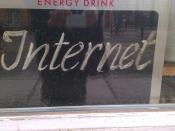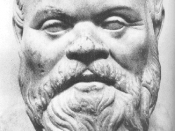Computers, and the Internet by extension, are powerful tools of communication and information. Some have abused these tools, others seek to impose control in one way or another. It is an interesting irony that WWW has also come to mean the "Wild, Wild West." Like in the old times, anything goes and everybody just have to watch their backs. The law is not fast enough to keep up with technology. Many cases have no precedence. Complicating matters is the absence of geographical boundaries in cyberspace. Judges, politicians, and lawyers are in a quandary what rules to apply.
Unlike Western movies, the bad guys in the Internet don't always wear black hats. Cyberporn, crackers, worm, e-commerce, copyright, warez, and MP3 are just a few terms in our growing Net vocabulary. These are hotly debated how loose or tight the Internet must be regulated.
Cyberporn refers to materials found on the Internet, such as pornographic pictures and videos on pay sites to erotic discussions in newsgroup and chat rooms.
Filters may give parents some peace of mind but it has been demonstrated that these also block access to non-porno sites such as universities or news sites. There is less concern over porn sites because most of these require credit cards. More threatening are pedophiles who befriend children in chat rooms and later arrange for personal meetings. Occasionally these cyber predators would send pornographic materials as e-mail attachments in the course of their correspondence with children. Federal agents, cops, and citizen volunteers have arrested many men by posing as minors in sting operations.
Crackers is the term non-destructive hackers use when referring to those who break in systems with criminal intent. A lot of hackers are teenagers full of creativity, curiosity, and bravado. Hacking (finding weaknesses and faults in the network systems...


Interesting, but need gramatical help
There was some interesting information in this article, although there were some points where the author seemed to digress from providing information into preaching about how to keep yourself safe. This essay could definately benefit from some gramatical cleanup, specifically subject/verb agreement and run-on sentences. Also, third from last paragraph states that "We will discuss copyright and fair use policy in another page." However, I don't see it discussed anywhere. (Side note, the "royal We" used in that sentence didn't really fit well in this paper.)
1 out of 1 people found this comment useful.